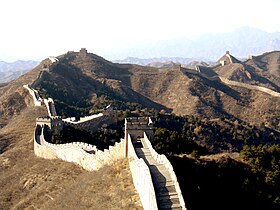
"The government's crazy" ... "This Pyinmana, I wish I could blow this place up". Those are the word of a Burmese deliveryman who appears in an interesting Washington Post article about the "capital" move, in a newspaper that mostly features US domestic reporting.
Burma’s new capital Pyinmana is located approximately 200 miles north of Yangon (Rangoon) in an area with little infrastructure (roads, houses, hospitals, etc.) and is located in a region with one of the highest rates of malaria, according to the Alan Sipress of the Washington Post.
Quite amusingly the article quotes a government official who states "You know there’s no psychiatric hospital…they’ll need one because everyone is going to go crazy". I love this article. I wish the paper would write more of these!
The article raises the interesting question of why the government has decided to move its capital from the well-established city of Yangon to the completely remote Pyinmana. Many theories exists, but this blog must emphasize the defensive maneuver behind it all. Partly, international opposition to the SPDC junta and the detainment of Aung San Suu Kyi. But also due to increasing threats from US foreign policy which has played hardball with other countries, while invading others deemed "undemocratic". Burma would definitely fit that profile.
All in all, this raises the issue of whether playing hardball with Burma is the best way to go. There’s the school of thought that argues that pressing a country against the wall would force it change. This has been partially successful for the US in Afghanistan, but less so in Iraq (and perhaps also North Korea). The other ethos is that of reaching out -- or the more sophisticated term -- engagement. Talking to the "enemy" and casting sunlight (a short homage to Mr. Kim Dae Jung) could also have positive results, but realists keep reminding me of the Munich Agreement (or appeasement) between Nazi Germany and ‘The Allies’. An ill-fated decision by particularly UK PM Neville Chamberlain. Yet, success with keeping Israel and Palestine in continuing negotiations has been through positive and constructive engagement -- not violence or confrontation.
But has the US played hardball? In words, perhaps, but in action? Perhaps there’s simply a lack of sympathy…
This blog called for a new front, or policy, vis-à-vis Burma in a previous post, but nothing has changed since (but I thought Condi was reading my posts?). It’s simply not at the core of any US/EU sphere of interest (the way Iraq and Israel are), at least if you ask Mr. Kissinger. People are in pain all over the world, the skeptic may argue --- why worry about Burma? …
Because we can, the Clintonite replied!!!!!
Article Link







